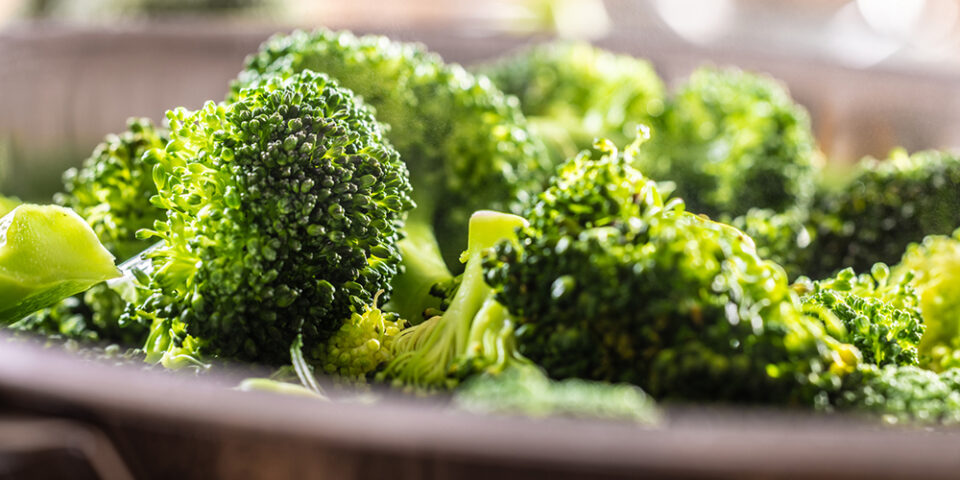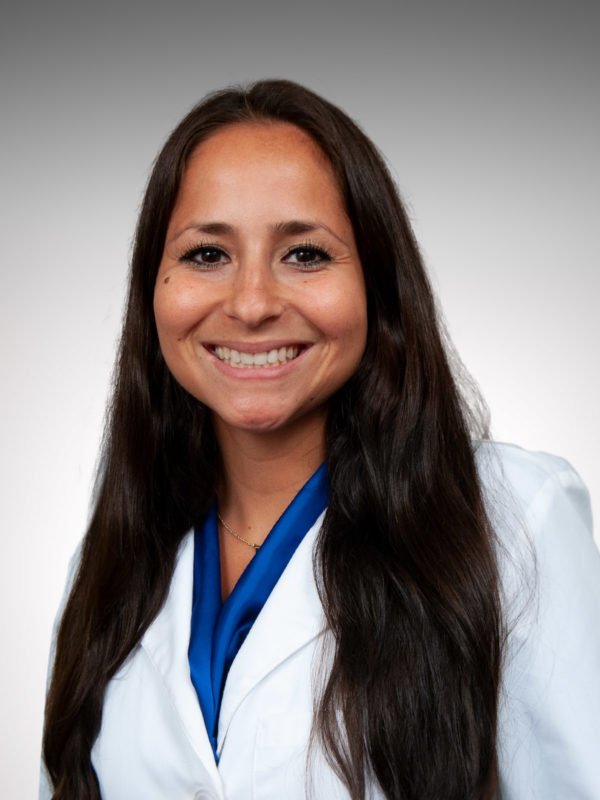4 foods to eat to help prevent cancer – and 3 to avoid
Wouldn’t it be great if you could prevent cancer by simply changing what you eat? Turns out, according to studies, about 30–35% of our cancer risk can be attributed to diet. Lifestyle medicine physician Cassidy Hood, MD, offered advice on which foods to eat to lower your risk of cancer – and which foods to avoid.
Can what you eat really lower your cancer risk?
According to the American College of Lifestyle Medicine, only 5–10% of our cancer risk comes from our genes. Besides age, everything else that increases our cancer risk can mostly be controlled through lifestyle changes. This includes our diet and weight as well as exposure to sunlight, tobacco, alcohol and infections.
“We actually have a lot that we can control,” Dr. Hood said. “About a third of cancers – including the common ones you hear about like breast, prostate and colorectal cancers – can be diet related and that is definitely something we can try to help control.”
4 foods to eat to lower your risk of cancer
Broccoli and other cruciferous vegetables
Veggies like broccoli, collard greens, radish, arugula and kale are nutritional powerhouses that benefit our bodies in many ways, but they’re also specifically helpful for cancer prevention.
Take this study on broccoli. Young smokers (in their 20s and 30s) who ate broccoli every day for 10 days were found to have 41% fewer changes in their DNA that led to cancer compared to young smokers who didn’t eat broccoli.
“It’s not like you have to eat these vegetables every day for years to have any effect,” Dr. Hood said. “Just 10 days had a very large effect on cancer prevention and in trying to heal these young smokers.”
Broccoli creates enzymes in the body that break down chemicals known as reactive oxygen species which cause inflammation and stimulate cells to mutate into cancer. All cruciferous vegetables create this enzyme.
“Not only does eating healthy help prevent cancer, but for people who have already been treated for cancer or are currently going through cancer treatments, it can decrease the chance of the cancer from coming back or slow its growth,” Dr. Hood said.
A study in women who took tamoxifen to treat breast cancer found that the women who ate at least one serving of cruciferous vegetables a day lowered their risk of cancer returning by half.
Fiber
There have been numerous studies about fiber and colon cancer risk, but one interesting study had to do with stool weight, meaning how much the poop weighed. In the United States, an average day’s poop weighs about .13-.16 pounds. The study found that people who ate more fiber and bulked up their stool so that it weighed more had a lower cancer risk.
“They found that higher weights of poop going through the colon not only went by quicker but also carried out extra cholesterol, salt and saturated fat, which lowered cancer risk,” Dr. Hood said.
Currently, the American College of Lifestyle Medicine recommends at least 30 grams of fiber a day. An average American gets around 5 to 10 grams. Fiber is only found in plant-based foods.
Flaxseed
Flaxseed has high levels lignans, a type of plant compound that decreases the body’s sensitivity to estrogen.
“A lot of breast cancers feed off estrogen, so flaxseed has been shown to help with breast cancer,” Dr. Hood said.
In one study, women who were high risk for breast cancer were biopsied and then given two teaspoons of flaxseed daily for a year. Biopsy results taken a year later showed that the women who ate flaxseed had fewer precancerous changes and decreased inflammation than women who did not eat flaxseed.
A similar study used flaxseed muffins. Women who were scheduled for breast surgery had a daily flaxseed muffin and another group ate a daily muffin without flaxseed. Biopsies taken at the time of diagnosis and time of surgery found that women who ate the flaxseed muffins had fewer cancer cells that were spreading, meaning the cancer was contained. The cancer cells also did not live as long, so it was less likely for the cancer to spread to different parts of the body.
Dr. Hood said the benefits of flaxseed are not limited to breast cancer. Studies have shown that the extra fiber in flaxseed lowers the risk of colon cancer and reduces blood pressure.
Turmeric
Turmeric’s benefit comes from curcumin, a bright yellow chemical found in plants that belong to the ginger family. One study looked the effects of curcumin on smokers, who are known to have an increased risk of colon cancer, and the polyps that were beginning to form in their colons. They found that after 30 days, the people given 4 grams of curcumin daily had reduced their polyps by almost 40%.
Another study looked at patients whose polyps were more advanced. They found that patients who were given curcumin plus quercetin (a nutrient commonly found in fruits and vegetables) decreased their polyps by half. Turmeric extract was also given to 15 people with colon cancer that did not respond to chemotherapy or radiation. After a couple of months, the cancer progress slowed down in about a third of the people.
“Turmeric is a great thing to add to our diet every day,” Dr. Hood said.
Adding about one-half to 3 teaspoons of turmeric a day to your food is most beneficial.
Foods to avoid that raise cancer risk
Alcohol
Alcohol’s risk comes from the chemical component acetaldehyde which has been found to increase cancer cells.
“The World Health Organization has said that no amount of alcohol is safe because acetaldehyde is a breakdown product of that alcohol which can then increase our risk of cancer,” Dr. Hood said.
Smoked meat
Studies have found that meat (beef, pork and chicken) cooked in a frying pan, air fryer or grill at high temperatures releases carcinogenic chemicals from the fat. Smoked meat had the highest risk. One study found four times more DNA mutations in the fumes from bacon than in beef patties. These DNA mutations increase cancer risk.
The Long Island Breast Cancer Study Project found that women who ate smoked meats from the grill had a 47% higher risk of breast cancer than women who ate meat that was cooked in the oven. Another study showed that women who ate bacon or steak well done had five times higher risk of getting breast cancer.
“If you are going to eat red meat, which we don’t really recommend at all, but if you do, we highly recommend avoiding smoked and grilled meats,” Dr. Hood said. “If you do eat it, try having a smaller portion. You would also benefit from marinating the meat, pre-cooking it in the oven and trimming off some of the fat, because the fat is really what causes the precancerous fumes.”
Foods with cholesterol
Cholesterol, which is a hormone as well as a fat in the bloodstream, is only found in animal-based foods, such as meat, dairy and eggs. The problem with cholesterol is cancer cells seem to like it.
A study on breast cancer showed that breast cancer cells used cholesterol in the blood to make more estrogen, which then fed the breast cancer cells, causing them to reproduce and spread throughout the body.
“Dairy products like milk, butter, cheese, sour cream and yogurt not only have high amounts of cholesterol, but they also contain steroid hormones like estrogen,” Dr. Hood said. “So, there’s a strong link between dairy products and increased breast cancer risk.”
Dairy also has an impact on prostate cancer. A study found that prostate cancer cells grew by approximately 30% when exposed to cow’s milk versus almond milk which decreased the growth of prostate cancer cells by more than 30%.
The bottom line on foods to eat to help prevent cancer
The American Institute for Cancer Research recommends eating mostly plant-based foods such as fruits, vegetables, beans, nuts and whole grains, and less meat and dairy. Also, look for minimally processed food, meaning fewer than seven ingredients.
“These are modifiable things you can do to keep yourself healthy and even reverse being unhealthy,” Dr. Hood said. “We have the power every day to help prevent cancer.”
Find the care you need, close to home
Our primary care physicians provide well visits and everyday care when you need it with compassion and expertise.
Find Primary Care Near You

